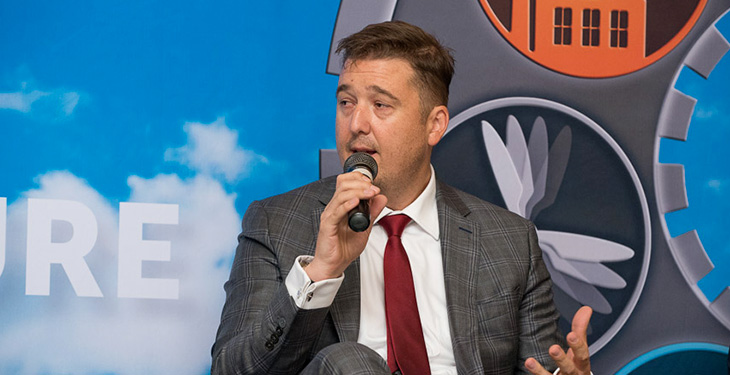CEZ became an international company in 2004 -2005, when it started buying similar companies abroad, Ondrej Safar, Country Manager CEZ România, told at the 2019 Energy Strategy Summit, an event organized by energynomics.ro.
“We started to expand in various countries. We expected that things should be the same in each market, but we soon realized that this is not the way that things work: every market is different, has slightly different priorities, and we have to respect that. This was very important for us, to really change our approach and become part of the market everywhere we are present and bring the combination between what we believe is the right thing to the specificity of the countries where we are present”, says Safar.
CEZ also became a stable partner for the authorities as well, a fact needed to ensure stability in the market.
“We are expecting a stable regulatory environment and is important to become an active and reliable partner. We should not be surprising authorities and not complain and find solutions together. It was important when we came to Romania and is important for the future, for us.”
Meanwhile, Romania became a more competitive market. Now the customers may choose their suppliers –the first step towards market competitiveness, but also with more and more services from the companies, and with prosumers connected to the grid, competitiveness grows. And CEZ became a partner of their customers. “It’s very important to be a trusted partner, and not offer just a discount and in the fifth page of the contract to hide tricks to overcharge them three months later, which is what some competitors are doing, so we need to be a really good partner and it is our obligation, as of all energy companies, to help and educate the market that there are these kind of risks, and they should be avoiding them.”
The current challenge for the future is the workforce, a fact which presses all the companies, not only in the energy sector. “When it comes to our companies, is very important to keep a good dialogue with our employees, is very important to have educated partners when it comes to social dialogue, developing it over the years, and now we have very educated discussion and we are able to reach agreements in a way beneficial for both parties, and this is something that takes years – also important for the future.”
Education and prosumers support programs
CEZ tries attracting new personnel by supporting education, from the elementary schools to university. “We are attracting them towards technical education. We are supporting them almost in every county where we are present with special classes of up to 20 students. With our partners and suppliers, we offer them jobs, and they can count on stable jobs for the future. We have started a new project with university of Petroșani, as we are present in that mining area, and together with the Wind Association (RWEA) and the Ministry of Energy, we retrain the people, giving them opportunity to be experts in the renewables and electrical works. It is important for us as well,” Safar added.
At the same time, as the digital society advances, CEZ also puts an emphasis on new technologies.
“The future is digital, and for us means prosumers – customers producing and storing electricity – being more independent, and our role will be, on the side of the distribution, to enable this process, to be prepared technologically; this requires a lot of focus and investment that customers don’t see. On the services side, is important for us to assist the customer in becoming more independent – offering tech know-how and supplying and providing the financing of this technology – it is very important, for the future,” Safar said.

